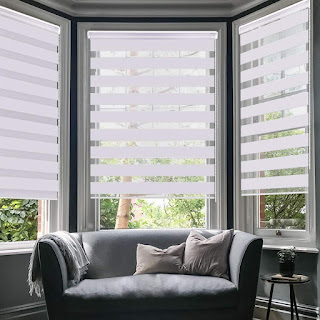Choosing the Perfect Window Shade: A Guide to Finding the Best Fit
Windows are more than just openings to the outside world; they are portals that allow light, fresh air, and even a touch of nature to grace our living spaces. While windows bring in these wonderful elements, they also necessitate a level of control to maintain privacy, regulate light, and enhance the overall aesthetics of your interior. This is where window shades come into play. With an array of options available, it can be quite the task to determine the best shade for your window. Let's explore the factors to consider when selecting the perfect window shade for your space.
1. Light Control and Privacy
The primary function of a window shade is to control the amount of light entering a room and ensure your privacy. The level of opacity in a shade plays a crucial role in achieving these goals.
- Sheer Shades: These allow diffused light to enter while maintaining privacy. They create a soft, elegant ambiance and are perfect for spaces where you want a balance of natural light and privacy, such as living rooms or kitchens.
- Blackout Shades: If you're looking to create a dark, cozy atmosphere or require complete privacy, blackout shades are your best bet. They block out nearly all external light and are ideal for bedrooms, media rooms, or spaces where glare reduction is a priority.
2. Aesthetics and Style
The aesthetic impact of window shades on your interior shouldn't be underestimated. The right shade can complement your decor and enhance the overall style of your space.
- Roman Shades: These shades come in various fabric options and fold neatly as they are raised. They offer a sophisticated, tailored look and work well in both traditional and modern interiors.
- Roller Shades: Simple and sleek, roller shades are available in a multitude of fabrics, colors, and patterns. They can range from sheer to blackout, making them versatile for various rooms and styles.
- Cellular Shades: Also known as honeycomb shades, these offer excellent insulation due to their unique cellular structure. They come in a range of opacities and are great for energy-efficient spaces.
3. Energy Efficiency
Window shades can contribute to energy efficiency by preventing heat loss during the winter and blocking heat during the summer. This can lead to reduced energy bills and a more comfortable living environment.
- Insulating Shades: Cellular shades and layered shades provide insulation by creating a barrier between the window and the room. They help maintain a consistent indoor temperature, making them an eco-friendly choice.
4. Maintenance
Consider how much time and effort you're willing to invest in maintaining your window shades.
- Fabric Shades: While elegant, fabric shades may require more maintenance as they can collect dust and may need occasional cleaning.
- Vinyl or Faux Wood Blinds: These are easy to clean and are more resistant to moisture, making them suitable for kitchens and bathrooms.
5. Functionality and Convenience
Think about how often you'll need to adjust the shades and how user-friendly they need to be.
- Motorized Shades: If convenience is paramount, motorized shades allow you to control them with the push of a button or even through smart home systems.
- Cordless Shades: For a clean and child-safe option, cordless shades eliminate dangling cords and are easy to operate.
In conclusion, the best shade for a window is a subjective decision that depends on your specific needs and preferences. Consider the level of light control and privacy required, the aesthetic appeal, energy efficiency, maintenance demands, and functionality when making your choice. By carefully weighing these factors, you'll be well on your way to selecting the perfect window shade that not only fits your window but also enhances the beauty and functionality of your living space.



Comments
Post a Comment